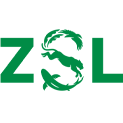Formed in 2011, the IUCN SSC Small Mammal Specialist Group (SMSG) is an expanding global network of scientists and conservationists who share a passion for the world’s rodents, shrews, moles, solenodons, hedgehogs and treeshrews. Our mission is to serve as the “global authority on the world’s small mammals through developing a greater scientific understanding of their diversity, status and threats, and by promoting effective conservation action to secure their future”.
Our volunteer members conduct fieldwork, lab research and donate their time and knowledge to improve the world’s scientific understanding of the taxonomy, ecology and conservation status of over 3200 of these often poorly known species. We promote conservation actions on the ground for species of conservation concern, and develop strategies to enable more effective conservation of small mammals. The SMSG serves as a scientific advisory body to the IUCN, the world’s oldest and largest global environmental organization. We are one of over 160 Specialist Groups, Red List Authorities and Task Forces made up of over 10,000 members that form the IUCN’s Species Survival Commission, all working towards a vision of “A world that values and conserves present levels of biodiversity.”






